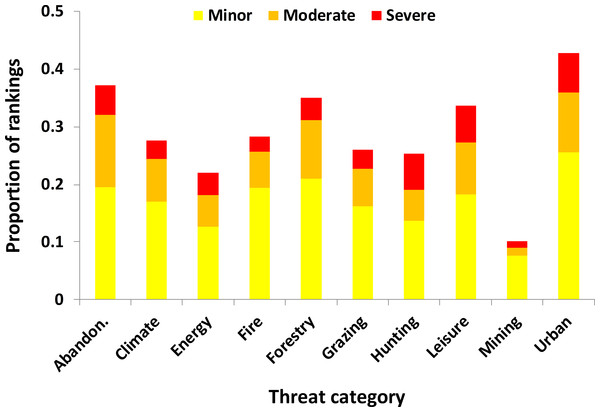
Alpine biodiversity is subject to a range of increasing threats, but the scarcity of data for many taxa means that it is difficult to assess the level and likely future impact of a given threat. Expert opinion can be a useful tool to address knowledge gaps in the absence of adequate data. Experts with experience in Alpine ecology were approached to rank threat levels for 69 Alpine bird species over the next 50 years for the whole European Alps in relation to ten categories: land abandonment, climate change, renewable energy, fire, forestry practices, grazing practices, hunting, leisure, mining and urbanization. There was a high degree of concordance in ranking of perceived threats among experts for most threat categories. The major overall perceived threats to Alpine birds identified through expert knowledge were land abandonment, urbanization, leisure and forestry, although other perceived threats were ranked highly for particular species groups (renewable energy and hunting for raptors, hunting for gamebirds). For groups of species defined according to their breeding habitat, open habitat species and treeline species were perceived as the most threatened. A spatial risk assessment tool based on summed scores for the whole community showed threat levels were highest for bird communities of the northern and western Alps. Development of the approaches given in this paper, including addressing biases in the selection of experts and adopting a more detailed ranking procedure, could prove useful in the future in identifying future threats, and in carrying out risk assessments based on levels of threat to the whole bird community.
from #MedicinebyAlexandrosSfakianakis via xlomafota13 on Inoreader http://ift.tt/1QG9M13
via
IFTTT
Δεν υπάρχουν σχόλια:
Δημοσίευση σχολίου